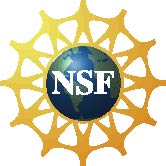



Our understanding of ocean mixing processes has generally lagged our grasp of large-scale ocean circulation. Perhaps the greatest impact of this knowledge gap has been the inability of large-scale ocean models to parameterize these small-scale processes adequately. This lack of adequate parameterization has, in turn, limited the ability of models to recreate all pertinent aspects of the large-scale circulation or to provide credible predictions of reaction to various climate change scenarios. Recently, though, a number of elegant studies involving methods such as tracer releases and utilizing newly developed instrumentation have started to close the gap in understanding between the very large-scale and the very small-scale ocean processes. We are now acquiring a quantitative, as well as a qualitative, understanding of the interactions among mean and fluctuating currents, internal waves, seafloor topography and roughness, stratification, and both diapycnal and lateral mixing.
As a result of these developments over the past decade, we are now at a point from where we can see a rapid growth in our quantitative understanding of ocean mixing and in our ability to model the large-scale ocean. The challenge will be to coordinate developments in these two areas so that we can obtain the greatest possible benefit to both, and to oceanography in general. This was a primary sentiment underlying the formation of Working Group 121. The conference was designed to encourage and accelerate the needed coordination through exchange of small-scale results within the context of large-scale processes. This exchange relied on the active participation of internationally known experts in the fields of ocean mixing and large-scale modeling, as well as the participation of younger researchers, who will be responsible for the future nurturing of ideas that surfaced during the conference.| Earth & Space Research (ESR) 1910 Fairview Avenue E., Suite 210 Seattle, WA 98102 USA | Scientific Committee on Oceanic Research (SCOR) Dept. of Earth & Planetary Sciences The Johns Hopkins University Baltimore, MD 21218 USA |


Questions or Comments?
Please
contact SCOR.